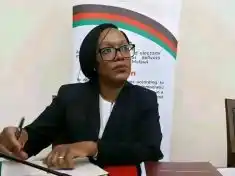
The Reserve Bank of Malawi (RBM) has introduced new regulations limiting the amount of foreign currency diplomats and their embassies can withdraw from their accounts.
Under these rules, diplomatic offices can withdraw up to $15,000 or its equivalent per calendar month for operational purposes. Meanwhile, ambassadors and consuls are capped at $3,000 or its equivalent per calendar month.
These limits are part of the bank’s efforts to ensure price and financial stability through sound monetary policies. The Reserve Bank of Malawi aims to promote economic development while maintaining a stable financial environment.

The new regulations define diplomatic offices and staff as embassies, consulates, ambassadors, consuls, attachés, and foreign employees of embassies and consulates. These entities will need to adhere to the specified withdrawal limits to comply with the central bank’s guidelines.
The recent foreign currency withdrawal limits imposed by Malawi’s central bank have sparked concerns among some individuals, who believe this development underscores the country’s dire economic situation.
They fear that these restrictions may prompt diplomatic missions to consider relocating to more economically stable countries like Zambia, Zimbabwe, or South Africa.
Onjezani Kenani, a prominent social media influencer, expressed concerns over the Reserve Bank of Malawi’s foreign exchange limits on diplomatic missions.
“The Reserve Bank’s move to restrict embassies’ access to withdrawing their foreign exchange from local banks risks driving them to relocate to neighbouring countries like Zambia or South Africa, further depleting Malawi’s already scarce foreign exchange reserves,” Kenani posted on social media.
Malawi’s economic challenges are well-documented, with the World Bank projecting a modest 1.4% economic growth in 2023, attributed to gradual macroeconomic stabilization and resumed electricity generation. The country’s economy has also been impacted by Cyclone Freddy, which hit in March 2023.








0 Comments